According to MSDN, Console::ReadLine:
Reads the next line of characters from the standard input stream.
The C++-Variant (no pointers involved):
#include <iostream>
#include <string>
int main()
{
std::cout << "Enter string:" << flush;
std::string s;
std::getline(std::cin, s);
std::cout << "the string was: " << s << std::endl;
}
The C-Variant (with buffers and pointers), also
works in with C++ compilers but should not be used:
#include <stdio.h>
#define BUFLEN 256
int main()
{
char buffer[BUFLEN]; /* the string is stored through pointer to this buffer */
printf("Enter string:");
fflush(stdout);
fgets(buffer, BUFLEN, stdin); /* buffer is sent as a pointer to fgets */
printf( "the string was: %s", buffer);
}
According to your code example, if you have a struct
patient (corrected after David hefferman's remark):
struct patient {
std::string nam, nom, prenom, adresse;
};
Then, the following should work (added ios::ignore after additional problem has been solved by DavidHeffernan by logical thinking). Please DO NOT use scanf in your code AT ALL.
...
std::cin.ignore(256); // clear the input buffer
patient *ptrav = new patient;
std::cout << "No assurance maladie : " << std::flush;
std::getline(std::cin, ptrav->nam);
std::cout << "Nom : " << std::flush;
std::getline(std::cin, ptrav->nom);
std::cout << "Prenom : " << std::flush;
std::getline(std::cin, ptrav->prenom);
std::cout << "Adresse : " << std::flush;
std::getline(std::cin, ptrav->adresse);
...
 My teacher just gave me an assignment in c++ and I am trying to get a string with scanf but it only get the last characters typed. Can anyone help me please? I am looking for the equivalent of console.readline() in c++.
My teacher just gave me an assignment in c++ and I am trying to get a string with scanf but it only get the last characters typed. Can anyone help me please? I am looking for the equivalent of console.readline() in c++.